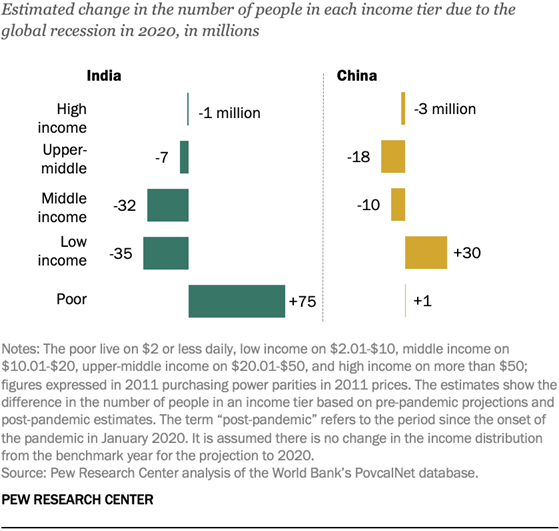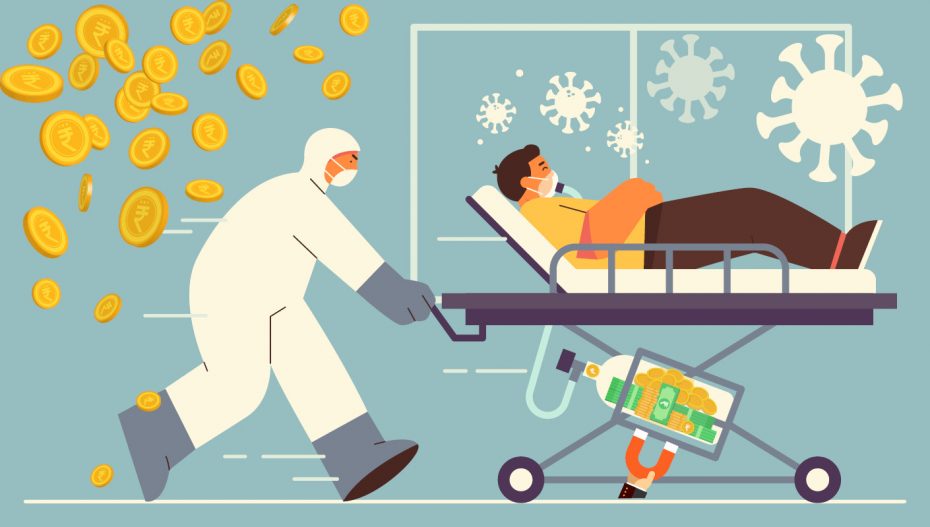For 31-year-old homemaker Drashti Parmar and her husband, who is an electrician and the sole breadwinner of the family, it was the post covid hospitalisation costs that were difficult to manage. Drashti and her mother were diagnosed with Covid-19 a month ago and received free treatment at Civil Hospital. The Ashram road residents lost their mother to Covid-19. As for Drashti, she recovered well but then had to undergo jaw surgery after she contracted mucormycosis, the dreaded ‘black fungus’.
Drashti’s husband works as an electrician and has been struggling to find work because of the lockdown. They have two young children.
“Drashti is now in-home treatment,” said a relative. “She has medications for black fungus, one of which costs Rs 20,000 per vial and another tablet that costs Rs 10,000 per strip. She has to spend Rs 80,000 to 90,000 per week on medicines. We had to start a fundraising drive to help them.”
Drashti’s family are among many in Ahmedabad who have sunk deeper into poverty during the pandemic.
Akbar Miyan, an auto-rickshaw driver from Ahmedabad’s Juhapura, has been working nearly 18 hours a day to make up for his savings washed away by the second wave.
His niece caught Covid last month and managed to get treatment in a government hospital. The treatment was free at the hospital, but the cost of medications post-discharge is giving Akbar and his family sleepless nights.
“It’s been a month and she is still undergoing treatment at home for black fungus infection,” Akbar said. “We had to borrow close to Rs 2 lakh and now we are struggling to repay.”
The lockdown has battered his income, he said, as more and more people now prefer to travel in their own vehicles.
Surbhi Desai, who works in a coffee shop in the Prahlad Nagar area, lost her mother to Covid in April. She is the only earning member of her family.
“As the place where I work was shut, I had no income,” said Desai, 29, “I struggled to arrange the funeral cost for my mother.”
All of them are evidence of what large studies have found — that the Covid-19 pandemic has turned India’s poor people poorer.
Poor getting poorer
The number of poor people in India increased by 75 million — 7.5 crore — because of the Covid-19-induced recession in 2020, according to a report from Pew Research Center, a major American think tank, published in March 2021.
Those with incomes of $2 or less a day were considered poor in the study, which also warned that these estimates were conservative.

“If the Covid-19 recession has worsened inequality, the increase in the number of poor is likely greater than estimated in this analysis, and the decrease in the number who are high income is likely less than estimated. The middle class may have shrunk by more than projected,” the report said.
The Centre for Monitoring Indian Economy’s (CMIE) Consumer Pyramids Household Survey also showed that the impact of Covid-19 on employment during the months of April and May 2021 was severe on daily wage workers across India.
Of the total 22.3 million jobs lost during April-May, 17.2 million were of daily wage earners.
Those national trends are mirrored in Ahmedabad.
“Our survey revealed that the weekly earning of daily wage workers in the city fell by 30 per cent during the partial lockdown following the onset of the second wave, with around 60 per cent saying that they had no money left,” said Subham Kaushal, a lawyer and researcher with the Aajeevika Bureau, a labour rights organisation in Ahmedabad.
“Of these, 27 per cent of the workers said they had health problems, including Covid-19 infection,” he added.
According to Aajeevika Bureau’s informal estimates, there are 1.3 million — 13 lakh — migrant workers in the city, forming the labour-power that drives five major sectors: construction, manufacturing, hotels and restaurants, head loading, and domestic work.
Kaushal said Covid-hit workers were forced to borrow from moneylenders at outlandish interest rates just to meet the medical costs.
“One cannot assume these workers were even getting proper treatment as they could have even visited private healthcare professionals not equipped to deal with Covid-19 and related complications,” Kaushal said.
“Since the awareness is so low, some of them had even visited quacks who charged them exorbitantly,” he added.












